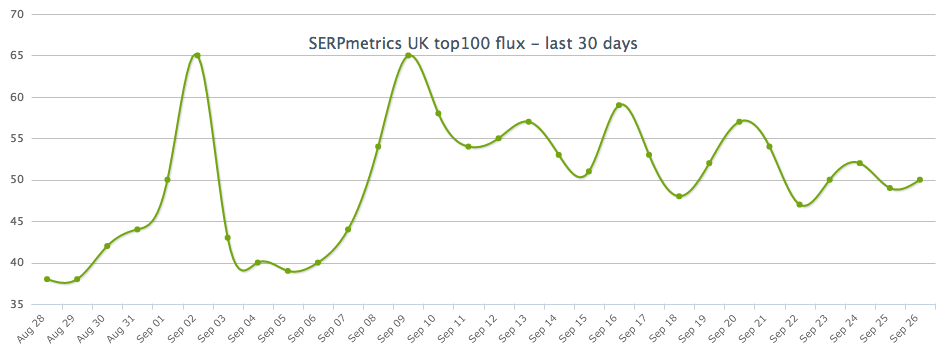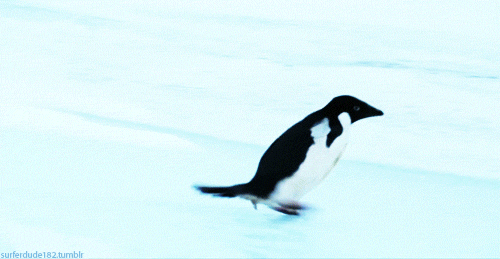With news that Penguin 4 finally launched, more than 700 days after the last iteration, it’s one of the biggest announcements to come from Google’s search team for a while.
Algorithm updates have always been the part of SEO which kept most people on their toes. Perhaps you could say that without algorithm updates the internet would be a very different place.
However, the talk of algorithm updates this summer is much less than it once was. Back when Panda was in full swing & Penguin had just bulldozed its way into action much of what we SEOs did related to the next update.
What is Penguin, Why Should I Care?
For those who haven’t been following SEO updates in any depth – or just need a refresher – Penguin is effectively Google’s ‘manipulative link’ police. Penguin’s introduction was to curb the prevalence of web spam and ultimately make it much, much harder to manipulate rankings with artificial or “built” links.
The various versions which followed the first release have tweaked & changed the way that these links were assessed and many websites have benefitted and suffered from it.
To over-simply things:
- If you’ve been heavily building unnatural or manipulative links you could at best lose rankings or worst get penalised for your troubles
- If you’re able to attract quality links the ‘right way’, you have everything to gain by Penguin’s influence
The most contentious element here is that I can think of many websites which are still riding high off the back of a spammy (manipulative) link profile and almost as many “clean” websites who are struggling to get ahead. Over the last 1-2 years many have deemed Penguin unfair because of their perception as to how it worked.
Recovering From Penguin
How to recover from the advance of Penguin has become an industry in its own right, and unsurprisingly as hundreds-if-not-thousands of businesses depended on it. Unwittingly Google’s actions spawned a whole range of tools aiming to side-step any kind of impact from Penguin (and also manual spam action – which is slightly different, but the impact similarly devastating), but even this recovery still had an over-reliance on Google. Again, not surprising.
Once you’d spent the time removing or disavowing these manipulative links you had to wait until Penguin re-ran (refresh or a full update) before any kind of full recovery could be seen. So when you think that some have been waiting for signs of recovery for over two years, it’s plain to see why the Penguin launch felt like a big day for some.
Do we still Disavow Bad Links?
Based on a recent announcement from Google it seems that Penguin “devalue[s] spam [links] instead of demoting” them. Put another way, rather than penalising anyone who has suspected spam links in their profile, Google will just take away any benefit those links provide.
Penguin now devalues spammy links instead of demoting them
This has some interesting implications, some are already claiming that this renders link disavow (mentioned above) pointless – which I’d say is a little premature considering Google’s own guidelines on this haven’t changed.
But this also presents an interesting take on negative SEO, Google had always maintained they do everything they can to ensure that webmasters can’t use spammy backlinks to damage other sites, but it’s often gotten it wrong.
If bad links simply get ignored as part of Penguin 4 it could take the damaging nature out of links altogether. Although I’d still want to wait to see the effects this most recent update has had before drawing any rushed conclusions.
‘Baked in’ to the Core
What’s most important to SEOs & digital marketers out there is that Penguin is now part of Google’s core algorithms. This means that the filtering effect happens continuously, so as Google re-crawls & processes websites manipulative links are valued or de-valued accordingly as it goes.
What’s really crucial here is that there is (in theory) no more waiting for months/years for it to happen. Since the update has been out for a week now there’s a good chance that many will start to see the effects trickle through.
What being part of the core also means is than rather than an aggressive shift when an update does happen, everything will be continuous.

When this happened with Panda it was both a blessing & a curse – I personally liked that the endless Panda speculation has faded away, but equally it made it harder to identify any issues with a website because of this. If you see that Panda rolled out, for example, and your website lost visibility as a result it was straightforward to identify that it was a content problem.
Generally speaking the consensus around penguin seems to be the same, the only waiting you need to do is based around how frequently Google crawls your site. This does mean that trouble-shooting Penguin issues may be much harder from here on.
This is intentional on Google’s part.
Should we Still be Worrying about Penguin?
The mindset of worrying about an algorithm update is most likely based on two feelings:
- Guilt – you know you’re flying a bit close to the sun, perhaps waiting to get burned?
- Paranoia – you’ve been hit before and don’t want it to happen again.
Personally, the less information Google give on updates the more I get to focus on doing the right thing for a website. Whilst I hope many have the same approach, I know that for some this may seem a little naive. Lets be frank, many manipulative tactics still work, and whilst I’d never recommend them if you have a brand & website to protect, the fact they do work makes my stance a little problematic.
Lets be frank, many manipulative tactics still work… I’d never recommend them if you have a brand & website to protect
What does worry me more specifically when Google makes any large changes to how their search results look is that they’ll always be losers & winners – sometimes who wins and who loses doesn’t feel fair. Take the earlier iterations of penguin for example, if a larger publisher/blog would get hit, the knock-on to those sites it linked to could be quite profound in some cases.
To phrase it another way, you could be hit by one of these algorithm updates by indirectly.
How do you Tell If you’ve Been Hit by Penguin 4?
As I’ve mentioned, it is still early in the roll-out, so it is more than likely you’ll not have noticed anything yet. Some people have reported early fluctuations, although overall flux is lower presently than it was at the start of the month when Google made an unannounced change.

For those wanting to keep a watchful eye on rankings, remember that Penguin 4 is more granular, it impacts pages rather than whole websites.
If you notice that a particular page is losing traffic in Analytics or the keywords relating to it are dropping – you could be seeing it happen to you.
To stress though, it is still early days, Google make hundreds of unannounced changes all throughout the year, so there is a possibility that if you’re seeing any changes now, it could be something else. Whatever you do, don’t make any knee-jerk decisions and start disavowing/removing links that you’re worried about… unless they really are obviously manipulative.
A Post-Algorithm Update Future?
There’s a strong chance we’re moving to a world (within SEO) where Google gives less & less information about its algorithms & when they update. We’ve already seen this over the last 18 months and it is totally within Google’s interest to ensure it continues to happen. The more people understand about their algorithms and how they update, the easier they are to game/beat – Google doesn’t want full transparency on what it changes.
Google doesn’t want full transparency on what it changes
Aside from obvious examples, Mobilegeddon, changes to local results and of course Penguin 4, the search quality team are getting tighter-lipped over what’s going on. Can you really blame them? Their algorithms will always change & evolve, but I think we’ll soon be seeing a post-update world – even more likely when you consider the growing influence of rankbrain & machine learning.
What Now?
For many it will be business as usual, for those who have been impacted by the most recent updates the process will be largely the same as before:
- Become very intimate with your website
- its content
- technical problems
- and off-page signals.
- Think less about what you can get away with and more what it would take for you to improve it.
Call me naive, but consider whether you really deserve to rank in the top 10 and work backwards from there.
Thanks to this post for Penguin gifs


